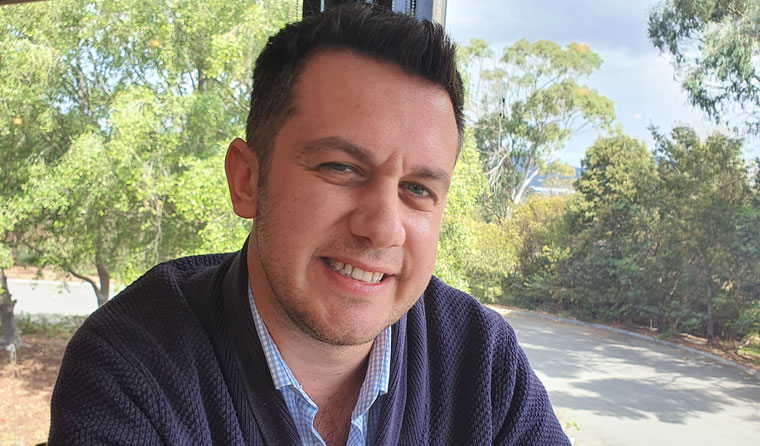News
eLearning portal aims to help doctors, as well as patients
A suite of online education modules designed to upskill GPs and assist them in the area of osteopathy has been released.
 The online courses are designed to enhance the wellbeing of not only patients, but healthcare professionals.
The online courses are designed to enhance the wellbeing of not only patients, but healthcare professionals.
Osteopathy Australia has launched a new e-learning portal with courses developed by allied health professionals, aimed to enhance the work of GPs, nurses and physiotherapists.
Topics include pain management, prevalent sports injuries, exercise rehabilitation, critical appraisal of research and doctor self-care.
Peter Tzanis, Osteopathy Australia’s Education Manager, said the modules were developed from a broad review of factors driving the burden of disease and chronicity in Australia, including lifestyle factors, pain, inappropriate rehabilitative practices, lack of self-management and unreliable clinical assessments.
These factors were then used to identify what health professionals need to know for optimal management of the burden of disease, through partnership with university and community-based physiotherapists, rehabilitative practitioners, pain specialists and exercise practitioners.
‘Through the modules, GPs can learn about how evidence-informed assessment and clinical management strategies can be modified for different patient groups, and to apply adjuvant modalities for common complaints in general practice that can be given with or without medications – such as lifestyle interventions, clinical progressions for specific conditions in the body, or counselling strategies for pain management,’ Mr Tzanis told newsGP.
‘The aim [is] to encourage consistent uptake of practices supported in the multidisciplinary clinical evidence base for maximising the clinician–patient relationship and patient outcomes.’
 Education Manager at Osteopathy Australia Peter Tzanis hopes the courses will deliver valuable education to all healthcare professionals involved in osteopathic care.
Education Manager at Osteopathy Australia Peter Tzanis hopes the courses will deliver valuable education to all healthcare professionals involved in osteopathic care.
For GPs, the ‘Pain management’ and ‘Caring for the clinician’ modules are of particular focus, given the central role GPs have in assessment and management of chronic pain, and current emphasis on doctor self-care.
Dr Duncan Sanders, senior lecturer at the Pain Management Research Institute, University of Sydney, and primary author of the ‘Pain management’ course, said it offers practical tools to screen and assess factors around acute and chronic pain in primary care settings, given that pain management ‘can be more complex than many recognise’.
‘The biggest predictors for long-term outcome are the psychological and social things that go on top of the normal symptoms like lower-back pain,’ Dr Sanders said.
‘[Patients may] present exactly the same, but unless you screen for psychosocial influences you will most likely miss risk factors for long-term pain and disability.’
According to Mr Tzanis, the Caring for the Clinician framework is a primary enhancement model that aims to educate and empower clinicians with knowledge and skills, as well as enhance their wellbeing and in turn, ‘immediately pass on those benefits to our patients’.
The module was developed to provide an evidence-based framework to sustain healthcare professionals through the challenges of their personal and professional lives, while remaining dedicated to the health and wellbeing of patients.
‘Not only has clinician burnout been shown to influence quality of care, patient safety and clinician turnout and patient satisfaction, but clinician engagement and thriving has been shown to enhance patient outcomes,’ Mr Tzanis said.
He highlights the importance of GP engagement across all of the modules, but particularly with the ‘Caring for the clinician’ model.
‘To have the largest possible positive impact on patients in the future, [GPs are encouraged] to involve themselves ... and engage with our framework by providing feedback, and potentially ways we can work together on building a landmark wellbeing model for all medical practitioners in Australia,’ Mr Tzanis said.
The Osteopathy Australia courses will count towards continuing professional development (CPD) hours, with more being developed for future release.
continuing professional development doctor self-care osteopathy osteoporosis pain management
newsGP weekly poll
Which of the following areas are you more likely to discuss during a routine consultation?